Final 100 Word Reviews
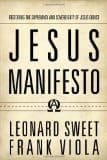

Jesus Manifesto is officially released tomorrow. It’s been endorsed by everyone from Ed Stetzer to Shane Claiborne. It’s a call to restore the supremacy and sovereignty of Christ. It’s co-authored by Len Sweet and Frank Viola, which is itself fascinating. This book reminds me of Spurgeon’s words: Christ “is the whole gospel. His person, offices, and work must be our great, all-comprehending theme. The world needs to be told of its Savior, and of the way to reach him…Blessed is the ministry of which CHRIST IS ALL.” A timely message. You can find out more at the book’s website.
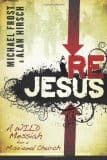
ReJesus: A Wild Messiah for a Missional Church is the latest book from Michael Frost and Alan Hirsch. The goal: “to reinstate the central role of Jesus in the ongoing spiritual life of the faith and in the life and mission of God’s people.” Len Hjalmarson worried about the danger of Christomonism after reading the book; Alan Hirsch responded. This is a similar book to Jesus Manifesto. What does it say that the church needs to be reminded to focus on Jesus?
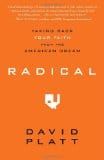
David Platt’s new book Radical has been getting lots of press: Justin Taylor, Kevin DeYoung, and J.D. Greear have all blogged about it – not all of it positive. The author, David Platt, returned from visiting an underground church overseas to his large American church. He writes:
I could not help but think that somewhere along the way we had missed what is radical about our faith and replaced it with what is comfortable. We were setting for a Christianity that revolves around catering to ourselves when the central message of Christianity is about abandoning ourselves.
Don’t read this book if you don’t want to be challenged. I found this book refreshing and challenging. It’s a good kick in the pants for North American Christians. I’d recommend it, along with Kevin DeYoung’s review, which should help with wrestling with the ideas raised in this book.
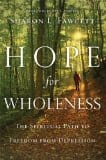
Sharon Fawcett spent nine years suffering from serious clinical depression. She endured 80 weeks as a patient in psychiatric wards, more than 100 electroconvulsive treatments, and 20 antidepressant medications. In Hope for Wholeness, she tells her story and explains the spiritual roots of depression, which are sometimes overlooked in favor of medical and psychological treatments.
It’s a raw and important book. Even if you don’t agree with everything she says, we can all learn from this book. We need to do a lot better job of understanding depression in our churches.
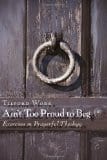
Don’t read Ain’t Too Proud to Beg if you’re in a rush. The Lord’s Prayer is only a few sentences, but this book is over 250 pages. It’s not so much an exposition of the Lord’s Prayer as it is a messy walk through the prayer as it relates to life. It’s a slow read, but it promises a lot if you invest some time and allow it to guide you in your prayer life.
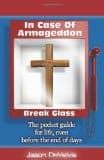
I like to keep a copy of In Case of Armageddon, Break Glass on my desk. The title sure gets reactions. The book is written by a “regular guy” who believes we’ve missed the point of Revelation. It’s not meant to help us predict timelines; it’s meant to shape how we live now. He’s right on and he does a good job of demystifying Revelation. I had a couple of minor quibbles – nothing to do with eschatology – but I can think of a friend who would love this book. I plan on passing it on.
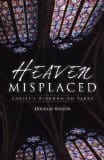
Heaven Misplaced: Christ’s Kingdom on Earth is another book by pastor and provocateur Douglas Wilson. It’s about the end times – but it’s not one of those books. Wilson argues against the common pessimistic view of the end of this world held my many Christians: that the world will get worse and worse before it gets better. He introduces a view he calls “historical optimism.” I don’t exactly share his view, but I’m closer to his view than you’d think. If you’ve only ever heard the Left Behind version of the end times, you owe it to yourself to read this book.
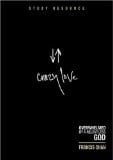
Is Francis Chan the new Rob Bell? This isn’t exactly a Nooma film, but it’s close. Crazy Love DVD is a day-in-the-life of Chan, in which he stops to teach us from his book Crazy Love. It’s meant as a ten-part group study and includes discussion questions. It’s a little gimmicky but the content looks good – as long as you’re okay following Chan from the moment he gets out of bed to when he shuts out the lights for the night.
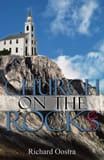
Church on the Rocks is written by Canadian Richard Oostra. He’s visited hundreds of churches and has observed that some things are seriously wrong in today’s church. This book comes in three sections: a description of what’s missing, a list of the changes that we need to make, and next steps. His hope is for change and revival. There are some important warnings in this book. Not a fun read, but a good corrective to fad-driven ministry.
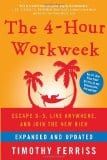
Now for something completely different: The 4-Hour Workweek. This book is part gimmick, but don’t write this book off too quickly. The section on elimination alone is worth the price of this book. And I was surprised how easy it is to outsource tasks through sites like elance.com. Read this book for what it is, but if you get past the hype, there’s some good stuff here.
A final note: I love reading books. One of the dangers in accepting books for review is that you stop reading the books you choose in favor of the books that end up in your mailbox.
I’m still going to review books here, but I plan on being a lot pickier in the future. I’m definitely going to try to keep the pile a bit shorter.






